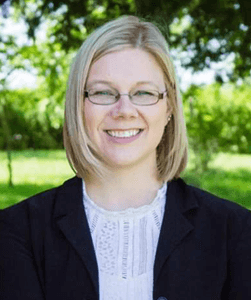Life is tough. Grief is painful. We all know this. And in no way do I ever want to diminish the intensity and genuineness of hard times. The holiday season especially resonates as a time of assumed joy and jolly while there so often is a looming emotion of grief, mourning, and worried hearts.
Grief is a process. There is really no end to it, but rather the format changes. And, amazingly, eventually, slowly, new flowers can bloom over the rotting, wrenching, wrecked roots of life. Not better. But different. Because in times of hardships, life becomes different.
The question is still, how do we persist on the garden of life when it is flooded with grief? How do we grow anything in a cold season? To help tough times become tolerable, here are a few tips.
Find Your People. Experiencing grief, especially during the holidays, can be what feels like the loneliest times of our lives. However, it is the most essential time to find “your people.” These are those people who won’t judge you. They get you. They hear you. They support you. It is never the number of people we are or are not around, it is the relationships with those people which matter.
If they reach out to you, sometimes we instinctively try to isolate ourselves and, unintentionally, separate from those we need most at the time. Fight that urge by acknowledging the difficulty in opening yourself up to them. Your people are the ones who will get that most.
Value Your Alone Time. Being with your people does not mean you shouldn’t allot time for yourself. Grief and loss is such a personal experience, sometimes it requires some personal time. Find a place and time which feel safe for you to declare as time for yourself. And set a specific amount of time as time for whatever may come from you. It may be tears, memories, anger, quietness, contentment and so many more things.
Be mindful of the moment and your worthiness of having that moment. When that time is over, remind yourself of having that time and place to return to but, importantly, not live in.
Remove Standards. Stigmas and standards can be the biggest downfalls of our uniqueness. When the pressures to try to meet them try to creep in–verbally, mentally, emotionally–push them away. Grief is not a straight line. Your feelings are not to be parallel to any others. Accept your feelings without guilt and process your choices and options in your own time.
Acknowledge that while most have good intentions, that does not mean they are right. Quit trying to follow “the healing process” and instead comfort yourself in knowing the process is your own.
Set Limits. Think about what word you are most comfortable with… is it yes or no? And then, consider welcoming the other a bit more. Be okay not being okay. Be okay in needing support and people and basic items.
Be also okay with saying no. No to people or items which you do not need or want. Say no to people coming over when you need a break. Say no to traditional family holiday expectations. Your time is just that, yours. Take ownership for your well-being.
Seek Outside Help. Sometimes grief or hardships are more intense than one person should handle independently. Help and/or support for them can come in many ways. Grief groups, therapeutic services, medications, friends and grieving resources are all examples of things which can be considered.
Since the stronger emotional bonds between people can increase the intensity of the grief one experiences, it is natural to have times when outside interventions are needed. Sometimes people not immediately impacted by the loss or crisis can help identify needs and coordinate services. Seeking and accepting help is one of the most challenging yet important healing steps towards healing from hardships and loss.

Amber Jewell is a licensed master social worker with over 15 years of experience working with youth and families in child protective services, education and mental health services. As an educator and an advocate for promoting change for and value within people, Amber works to inspire and motivate others to grasp their own form of hope. She is also a motivational speaker and has experience in the foster system. She is the author of Finding Hope: The 12 Keys To Healing Hardship, Hurt & Sorrow.





